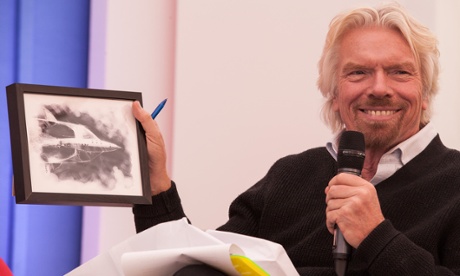
Richard Branson has warned that the UK’s current digital skills gap is “the tip of a huge iceberg” and could grow into an “unmanageable problem” if it is not effectively tackled.
The Virgin founder said it was the responsibility of both government and big businesses to provide support to small businesses and education to young people in order to address the looming skills shortage.
Branson told the Guardian that while telecoms companies should do as much as possible to help their customers benefit from the opportunities technology offers, measures taken by big businesses only form part of the solution to the shortfall. He said: “Government must also play a part – whether in preparing the entrepreneurs of tomorrow during their schooling or helping SMBs to understand how digital can help them succeed.”
An 02 report predicted last year that if the UK cannot find 750,000 digitally skilled workers by 2017 it will lose out on £2bn a year. An interim report in July by the UK Digital Skills Taskforce also warned of an impending skills gap and suggested that young people were put off going into the digital industry because of the stereotypes attached to it.
Training and vocational education has widely been posed as one solution to ease the shortage. In a thinly veiled attack on the previous Labour government’s ambition to send 50% of school leavers to university, Branson said: “Ten years ago it felt as though teenagers in Britain were being told that university was the be all and end all, whereas in reality higher education wasn’t of use to many of those paying for it.”
Branson touts apprenticeships as an effective alternative to equip the young generation with digital skills. He said the opportunity for employers to take a more direct role in creating and delivering training is a positive move, meaning “the skill sets required for industry are designed by the industry that needs them”.
He also called for “more options” for young people once they complete their GCSEs: “It’s not a case of trying to make sure everyone heads off to university. For some people that’s fine, but for a great many, including yours truly, it’s just not the right fit.”
Warnings about an impending skills shortage have triggered the coalition to launch a Digital Skills Committee, the GoOn campaign, to introduce programming into the curriculum, and to endorse charities and companies, like Virgin Media Business, that are taking their own measures.
Branson praised the response but warned that as the economy is increasingly digitalised, the problem could worsen: “The government has really stepped up its activity on digital skills this year [...] However, this is the tip of a huge iceberg and it’s right that pressure is applied to ensure this doesn’t become an unmanageable problem.”
He added: “There are jobs that don’t exist today that we need to try and prepare the younger generation for. This can’t happen if we lag behind on the skills that are required. We need to look to the future and anticipate the skills level that will be needed not just tomorrow but in five, 10 and even 20 years’ time.”
Virgin is one of a number of large businesses, including Microsoft and Sage, that have produced a package of services to help small businesses tackle the digital skills gap from the ground up.
The serial entrepreneur, whose company is a provider of start up loans, also suggested that more needed to be done to encourage entrepreneurialism in deprived areas. He said that government could not provide solutions to every problem, adding that entrepreneurs “can really make a difference” and that he would like to “give more people than ever before the opportunity to start their own business, wherever they are from and whatever their background”.
To get weekly news analysis, job alerts and event notifications direct to your inbox, sign up free for Media Network membership.
All Guardian Media Network content is editorially independent except for pieces labelled ‘Advertisement feature’. Find out more here.

